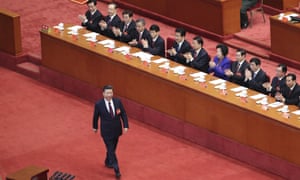#Temer
has said he is the victim of
a conspiracy and Bolsonaro news
(theguardian)

President Michel Temer attends a celebration of small business at Planalto Palace in Brasília earlier this month. He faces charges of corruption, racketeering and obstruction of justice. Photograph: Evaristo Sa/AFP/Getty Images
Lula is seeking a return to the presidency in 2018 – and currently leads polling, but he has been handed nearly a sentence of nearly 10 years in prison for corruption and money laundering, and may well be ruled ineligible to stand.

Brazil's right on the rise as anger grows over scandal and corruption
Read more
A likely
rightwing candidate is João Doria, the
flamboyant, multimillionaire mayor of São Paulo. Like Donald
Trump, he is a former host of Brazil’s version of the TV show The
Apprentice, only assumed power last January, and has no prior
administrative experience.
Running
second in many polling scenarios is Jair Bolsonaro, a
former army captain whose extreme rightwing, authoritarian
message plays well with those angry over corruption as well as voters
petrified by Brazil’s soaring levels of violent crime.
And he
enjoys the support of a growing number who argue that Brazil’s
armed forces should intervene – as they did in 1964, when they
installed a vicious dictatorship that lasted 21 years – an option
supported by 43% , according to a September online poll.
In
September the high-ranking army general Antonio Mourão spooked many
when he said that in his view if Brazil’s institutions could not
remove those involved in illicit acts from public life, “we will
have to impose this”.
Bolsonaro
defended him. “Democracy isn’t done by buying votes or accepting
corruption for governability,” he tweeted to 602,000 followers.
“Reacting to this is the obligation of any civilian or SOLDIER.”
Since you’re here …
… we have
a small favour to ask. More people are reading the Guardian than ever
but advertising revenues across the media are falling fast. And
unlike many news organisations, we haven’t put up a paywall – we
want to keep our journalism as open as we can. So you can see why we
need to ask for your help. The Guardian’s independent,
investigative journalism takes a lot of time, money and hard work to
produce. But we do it because we believe our perspective matters –
because it might well be your perspective, too.
I appreciate there not being a paywall: it is more democratic for the media to be available for all and not a commodity to be purchased by a few. I’m happy to make a contribution so others with less means still have access to information. Thomasine F-R.
If everyone
who reads our reporting, who likes it, helps to support it, our
future would be much more secure.







Nenhum comentário:
Postar um comentário